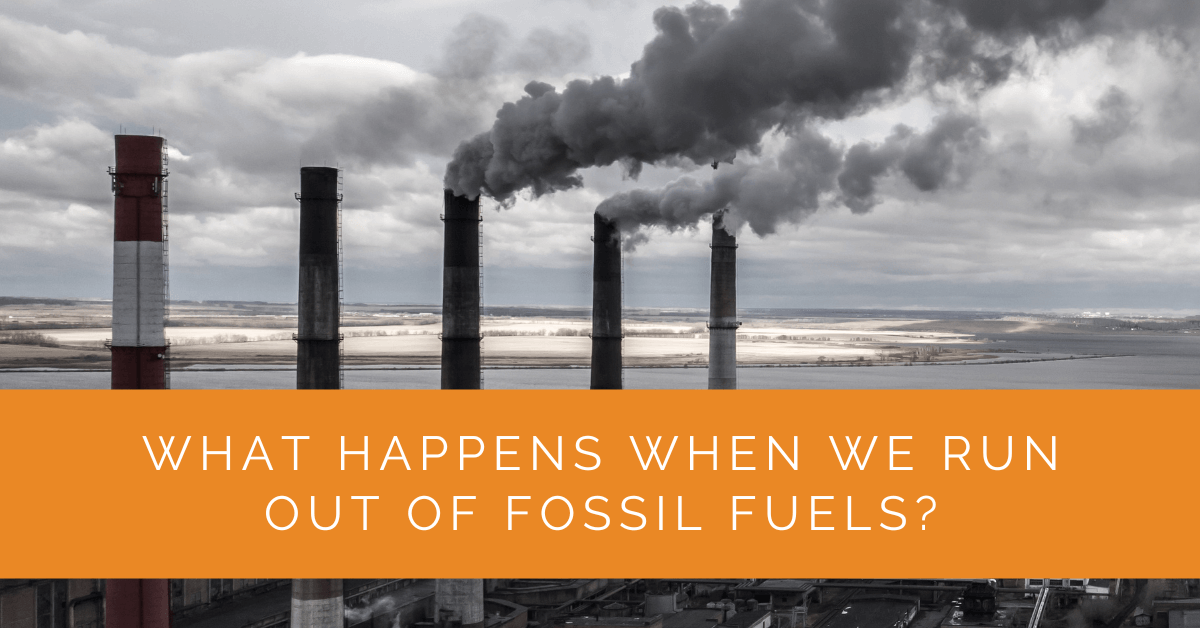Fossil fuels have long been the backbone of our modern society, powering industries, transportation, and daily lives. However, the limited nature of fossil fuel reserves raises concerns about their depletion and the subsequent implications for our future. In this article, we will delve into the significance of fossil fuels, the factors leading to their depletion, the consequences we may face, and the urgent need to transition to sustainable alternatives, particularly renewable energy sources.
Contents
- 1 Key Takeaways
- 2 The Significance of Fossil Fuels
- 3 Factors Leading to Fossil Fuel Depletion
- 4 Consequences of Fossil Fuel Depletion
- 5 Transitioning to Sustainable Alternatives
- 6 Preparing for a Fossil Fuel-Free Future
- 7 Expert Insights From Our Solar Panel Installers About Fossil Fuel Depletion and Renewable Energy Transition
- 8 Experience Solar Excellence with Us!
- 9 Conclusion
Key Takeaways
- Fossil fuel depletion will have profound economic, environmental, and social consequences, including higher energy costs, environmental degradation, and geopolitical tensions.
- Transitioning to renewable energy sources is crucial to mitigate these consequences, with solar power being a particularly viable solution due to its decreasing costs, minimal emissions, and potential for job creation.
- Preparing for a fossil fuel-free future requires investments in research and development, energy efficiency measures, and promoting sustainable lifestyles to ensure a resilient and sustainable energy system for future generations.
The Significance of Fossil Fuels
Understanding Fossil Fuels and Their Importance
Fossil fuels, such as coal, oil, and natural gas, are formed from the remnants of ancient plants and animals that lived millions of years ago. These energy-dense resources have been vital in powering industrial revolutions and technological advancements. The widespread use of fossil fuels has enabled unprecedented economic growth and development.
Reliance on Fossil Fuels in Modern Society
Our dependency on fossil fuels is evident in various sectors, including transportation, electricity generation, manufacturing, and heating. The global consumption of fossil fuels continues to rise as emerging economies demand more energy to fuel their growth. However, this ever-increasing reliance comes with significant challenges and risks.
The Implications of Fossil Fuel Depletion
While it is difficult to predict the exact timeframe for fossil fuel depletion, experts agree that our current consumption rate is unsustainable. Oil reserves, for instance, are estimated to last for several more decades, while natural gas reserves may deplete sooner. The depletion of fossil fuels would have far-reaching consequences beyond mere energy shortages.
Factors Leading to Fossil Fuel Depletion
The Limited Nature of Fossil Fuels
Fossil fuels are finite resources that took millions of years to form, and their extraction rate far exceeds the rate of natural replenishment. As a result, we are depleting these valuable energy sources at an alarming pace. It is essential to recognize that the Earth’s reserves of fossil fuels are not infinite and will eventually run out.
Current Rates of Consumption
With the global population and energy demands rising, the consumption of fossil fuels has skyrocketed. As developing nations strive to achieve higher living standards, the energy demand is expected to surge further. Unless we reduce our dependence on fossil fuels and adopt sustainable practices, we risk exhausting these resources long before we can find viable alternatives.
Projected Timelines for Depletion
While estimates on fossil fuel depletion vary, experts warn that the consequences of running out of these resources could be dire without significant changes. Oil, the most widely used fossil fuel, will last several decades. Natural gas, often considered a bridge fuel, may provide a more immediate challenge as reserves are depleted faster than anticipated.

Consequences of Fossil Fuel Depletion
Economic Impacts
The depletion of fossil fuel reserves will have profound economic implications. As the availability of these resources diminishes, their prices will surge, leading to higher energy costs and affecting various industries. Furthermore, countries heavily reliant on fossil fuel exports may experience significant economic setbacks, prompting the need for diversified energy portfolios.
Environmental Consequences
The extraction, refining, and combustion of fossil fuels have significant environmental impacts. The release of greenhouse gases, such as carbon dioxide, contributes to climate change and global warming. Additionally, fossil fuel extraction often leads to habitat destruction, water pollution, and negative health effects for communities near extraction sites. Transitioning to cleaner energy sources is crucial to mitigate these environmental consequences.
Social and Geopolitical Effects
Fossil fuel dependence can also have geopolitical implications. Countries with abundant fossil fuel reserves often wield considerable influence and leverage in global affairs.
Additionally, conflicts over access to and control of fossil fuel reserves have historically been a source of geopolitical tension. As fossil fuel reserves dwindle, competition for remaining resources may intensify, potentially leading to conflicts and strained international relations. Transitioning to renewable energy sources can help reduce these geopolitical risks and promote energy independence.
Transitioning to Sustainable Alternatives
The Rise of Renewable Energy Sources
Renewable energy sources, such as solar, wind, hydro, and geothermal power, offer a promising solution to the challenges of fossil fuel depletion. Unlike fossil fuels, renewable sources are naturally replenished and produce minimal greenhouse gas emissions during operation. Their harnessing has become increasingly efficient and cost-effective, making them viable alternatives to conventional energy sources.
Solar Power as a Viable Solution
Solar power, in particular, has gained significant momentum in recent years. Solar panels, consisting of photovoltaic cells, convert sunlight directly into electricity. The advancements in solar technology and decreasing costs have made solar power a competitive and accessible energy source. Harnessing solar energy reduces our reliance on fossil fuels and contributes to reducing carbon emissions and mitigating climate change.
Benefits of Embracing Renewable Energy
Transitioning to renewable energy sources brings numerous benefits. First and foremost, it allows us to reduce greenhouse gas emissions and combat climate change, protecting the planet for future generations. Renewable energy also diversifies our energy portfolio, increasing energy security and reducing vulnerability to price fluctuations and geopolitical conflicts associated with fossil fuel dependence. Moreover, the renewable energy sector creates job opportunities and fosters economic growth in various regions.

Preparing for a Fossil Fuel-Free Future
Investing in Research and Development
Significant research and development investments are necessary to embrace a fossil fuel-free future fully. Advancements in energy storage technologies, grid integration, and renewable energy efficiency will enhance the reliability and scalability of renewable sources. Governments, private entities, and academic institutions must collaborate to accelerate innovation and drive the transition toward sustainable energy systems.
Energy Efficiency and Conservation Measures
While transitioning to renewable energy is crucial, promoting energy efficiency and conservation is equally important. Reducing energy waste and optimizing our consumption patterns can lessen the overall energy demand. Energy-efficient practices in buildings, transportation, and industrial processes can significantly mitigate the strain on fossil fuel reserves and pave the way for a more sustainable future.
Promoting Sustainable Lifestyles
Shifting to a fossil fuel-free future requires collective efforts and individual choices. Embracing sustainable lifestyles, such as using public transportation, adopting energy-efficient appliances, and practicing responsible consumption, can substantially reduce our overall energy consumption. Education and awareness campaigns can play a vital role in encouraging these behaviors and fostering a culture of sustainability.
Expert Insights From Our Solar Panel Installers About Fossil Fuel Depletion and Renewable Energy Transition
Transitioning from fossil fuels to renewable energy sources is not just an environmental necessity; it’s an economic imperative. Solar energy, with its decreasing costs and increasing efficiency, offers a viable path forward.
Senior Solar Installer
The reality of finite fossil fuel reserves makes the shift to renewable energy sources like solar power crucial. Investing in solar technology now prepares us for a sustainable and resilient future.
Lead Renewable Energy Technician
Adopting solar energy reduces our carbon footprint and enhances energy security, mitigating the risks associated with fossil fuel dependency and fluctuating global markets.
Solar Energy Consultant
Experience Solar Excellence with Us!
Trust in Solar Panels Network USA, where our seasoned experts deliver top-quality solar solutions for homes and businesses nationwide. With a legacy of countless successful installations and a commitment to sustainable energy, we’re your reliable partner in the solar journey. Ready for a brighter, eco-friendly future? Call us now at (855) 427-0058 and harness the power of the sun!
Conclusion
As we face the reality of finite fossil fuel reserves, we must acknowledge the urgency of transitioning to sustainable alternatives. The consequences of running out of fossil fuels are far-reaching, impacting our economy, environment, and social fabric. We can create a resilient and sustainable future by embracing renewable energy sources, investing in research and development, and promoting energy efficiency. The time to act is now as we forge a path toward a world powered by clean, renewable energy sources. Together, we can ensure a brighter and more sustainable future for future generations.
About the Author
Solar Panels Network USA stands at the forefront of solar energy solutions, driven by a team of seasoned solar engineers and energy consultants. With over decades of experience in delivering high-quality solar installations and maintenance, we are committed to promoting sustainable energy through customer-centric, tailored solutions. Our articles reflect this commitment, crafted collaboratively by experts to provide accurate, up-to-date insights into solar technology, ensuring our readers are well-informed and empowered in their solar energy decisions.

